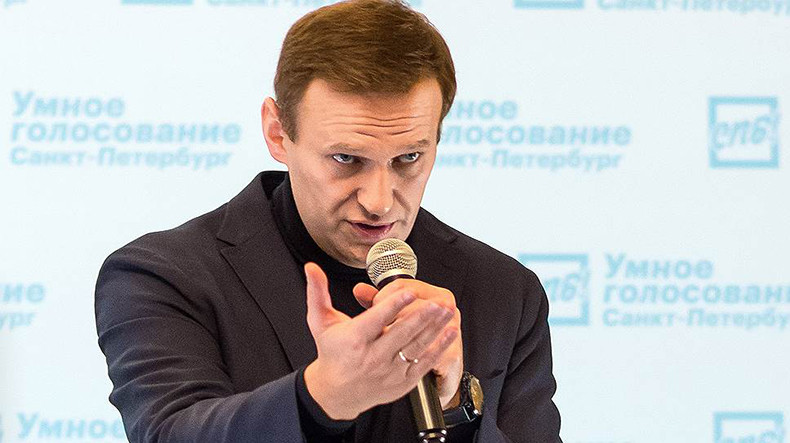
European court: Russia violated Navalny's rights with house arrest
The European Court of Human Rights (ECHR) has ruled that Russian authorities violated the rights of opposition politician Aleksei Navalny by holding him under house arrest in 2014, RFE/RL reports.
Navalny was placed under house arrest in February 2014 and confined to his home for several months while he was being investigated on suspicion of embezzlement in the so-called Yves Rocher case, which he and supporters say was politically motivated.
"The restrictions on him, including tight limits on his communicating, [were] out of proportion to the criminal charges he had faced," the ECHR said in a statement after its ruling on April 9.
The ECHR ruled that Russia had violated the European Convention on Human Rights and said it was "apparent that he had been treated in that way in order to curtail his public activities."
The court ordered Russia to [pay Navalny 20,000 euros ($22,480) in damages and 2,665 euros ($3,000) in remuneration for costs and expenses related to the case."
Navalny called the ECHR's ruling a "victory" on his Instagram account, while President Vladimir Putin's spokesman criticized it.
"I congratulate our team of lawyers and all the honest people, who have supported us. I am sure that this ruling will have important consequences for those in Russia who have constantly been facing similar lawlessness," Navalny wrote.
Kremlin spokesman Dmitry Peskov said the ruling was "quite unexpected" and that Putin's administration could "hardly agree" with it.
In December 2014, Navalny and his brother Oleg were convicted by a Russian court on charges of embezzling 30 million rubles -- then worth about $442,000 -- from the Russian branch of Yves Rocher and another firm.
But the Strasbourg-based ECHR ruled in October 2017 that the Russian courts violated their right to a fair trial in the case.
That ECHR ruling initially held that their convictions in the Yves Rocher case fell outside the definition of fraud.
When Russia appealed that decision, the ECHR reconsidered the case and in November 2018 expanded its ruling against Russian authorities.
It found that Russia violated Navalny’s rights over numerous arrests and detentions from 2012 to 2014, calling them "unlawful and arbitrary" and "politically motivated."
Navalny is one of Putin’s main political opponents.
Newsfeed
Videos






























